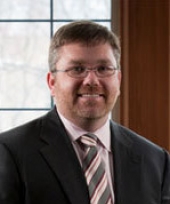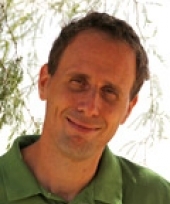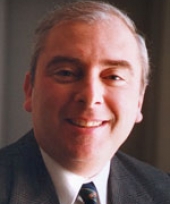Aharon Barak
Aharon Barak, born in Lithuania in 1936, is married and the father of four. He studied law, economics and international relations at the Hebrew University in Jerusalem. Barak received an MA in law in 1958, and a doctorate in 1963. He was appointed Associate Professor of Law at the Hebrew University in 1968 and became Dean of that Faculty in 1974. From 1975-8, he occupied the position of Attorney General of Israel, an appointed and independent position in the Ministry of Justice overseeing the justice system. He was appointed to the Supreme Court of Israel in 1978 and became its President in 1995. His retirement from the Court takes place in September 2006 when he reaches the age of mandatory retirement. He has received number prizes and honours, including the Kaplan Prize for excellence in science and research and the Israel Prize in legal sciences as well as numerous honorary degrees. He is the author of a number of books in Hebrew and in English as well as numerous articles on a wide variety of legal topics. His publications in English include Judicial Discretion, Purposive Interpretation in Law and The Judge in a Democracy, from Princeton University Press.
Ilan Benshalom
Ilan Benshalom, L.L.B. (University of Jerusalem) 2002, LL.M (University College London) 2003, LL.M (Yale Law School) 2005, JSD (Yale Law School) 2007 is an Associate Professor in the Hebrew University Faculty of Law. Taught previously at Northwestern School of Law as a Visiting Assistant Professor. Researches in a great array of tax issues including: theory of the tax base, international taxation, tax and charity, tax and welfare policy. Was a grantee of Chevening and Fulbright scholarships.
Hanoch Dagan
Hanoch Dagan is the former Dean of the Tel-Aviv University Faculty of Law (2006-2011) and the founding director of the Zvi Meitar Center for Advanced Legal Studies (2007-2011). He is also a Senior Fellow at the Israel Democracy Institute and a member of the American Law Institute and of the International Academy of Comparative Law. Prof. Dagan received an LL.M. and a J.S.D. from Yale Law School (where he held a Fulbright award) after receiving his LL.B. Summa Cum Laude from Tel Aviv University. Prior to becoming Dean he was the Director of the Cegla Center for Interdisciplinary Research of the Law and the Editor in Chief of Theoretical Inquiries in Law. He was also a visiting professor and an Affiliated Overseas Professor at the University of Michigan Law School. Prof. Dagan has published over forty articles in leading legal journals such as Yale Law Journal, Columbia Law Review, New York University Law Review, California Law Review, Virginia Law Review, Michigan Law Review, Cornell Law Review, Texas Law Review, University of Toronto Law Journal, Boston University Law Review, American Bankruptcy Law Journal, American Journal of Comparative Law, and Yale Journal of Law and the Humanities. Prof. Dagan has also written four books: Unjust Enrichment: A Study of Private Law and Public Values (Cambridge University Press, 1997), The Law and Ethics of Restitution (Cambridge University Press, 2004), Property at a Crossroads (Ramot, 2005) (in Hebrew), and Property: Values and Institutions (Oxford University Press, 2011). He is currently working on two new books: Properties of Property (with Gregory S. Alexander) (Aspen, forthcoming 2012), and American Legal Realism Reconsidered (Oxford University Press, forthcoming 2013). During the Fall of 2011 Professor Dagan will be a Visiting Professor of Law and Oscar M. Ruebhausen Distinguished Senior Fellow at Yale Law School.
Martin L. Friedland
Martin L. Friedland, C.C., Q.C., B.Comm. (Toronto) 1955, LL.B. (Toronto) 1958, LL.D (hon.) (Toronto) 2001, LL.D (hon.) (York) 2003, Ph.D. (Cambridge) 1967, LL.D. (Cambridge) 1997, called to the Bar of Ontario in 1960 and appointed Queen's Counsel in 1975, is University Professor and James M. Tory Professor of Law Emeritus. Professor Friedland taught at Osgoode Hall Law School until 1965 when he joined the University of Toronto as an Associate Professor. He was promoted to Professor in 1968 and served as Dean from 1972-1979. He also served as a full time member of the Law Reform Commission of Canada in Ottawa from 1971 to 1972 and has been associated with many other government commissions and committees. He was appointed a Fellow of the Royal Society of Canada in 1983, and in 1985 was awarded the Canadian Association of Law Teachers/Law Reform Commission of Canada Award for an Outstanding Contribution to Legal Research and Law Reform. In 1987 he was awarded the University of Toronto Alumni Faculty Award. In 1990 he was appointed an Officer of the Order of Canada and in 2003 was promoted to a Companion of the Order. In 1994 he received the Canadian Bar Association's Ramon John Hnatyshyn Award and the Criminal Lawyers Association's G. Arthur Martin Award, in 1995 was awarded the Canada Council Molson Prize in the Humanities and Social Sciences, and in 2003 received the Royal Society of Canadas Sir John William Dawson Medal. He is currently a Fellow of Massey College and is cross-appointed to the Centre of Criminology. Professor Friedland specializes in Criminal Law and is author or editor of seventeen books, including: Detention Before Trial, Double Jeopardy, Access to the Law, The Trials of Israel Lipski, The Case of Valentine Shortis, A Place Apart, and The University of Toronto: A History, as well as many law review articles and reports. He is currently working on a manuscript that examines legal issues with which he has been involved over the past fifity years..
Mark McKenna

Mark McKenna is a Professor of Law at the Notre Dame Law School. Professor McKenna’s research and teaching interests focus on intellectual property, primarily trademark, copyright, and the right of publicity. He has recently published trademark-related work in a number of leading American law reviews, including the Michigan Law Review, Stanford Law Review, and Virginia Law Review, and he is a co-author of The Law of Intellectual Property (Aspen Law & Business, 3d ed. 2011). Professor McKenna’s latest projects deal with market definition in intellectual property, concerns about intergenerational equity, and the role of the placebo effect in intellectual property. He also currently serves as chair of the intellectual property section of the Association of American Law Schools. A graduate of Virginia Law School, Professor McKenna litigated trademark and copyright cases with an intellectual property firm in Chicago before entering academia.
Horacio Spector
Horacio Spector is Professor of Jurisprudence and Dean of the School of Law of Universidad Torcuato Di Tella in Buenos Aires, Argentina. He obtained a law degree and a doctor’s degree in legal philosophy from the University of Buenos Aires. He has been awarded prestigious research fellowships (John Simon Guggenheim Memorial Foundation, Alexander von Humboldt Foundation, etc.). He has been visiting scholar at the universities of Oxford, Heidelberg, and Mannheim, and the Hebrew University of Jerusalem, the University of San Diego, and the University of Alicante in Spain. He has published various articles in the areas of moral, legal and political philosophy, comparative law, and law and economics in journals like Mind, Law and Philosophy, Chicago-Kent Law Journal, Florida State University Law Review, and many others. He is the author of two books: Autonomy and Rights, The Moral Foundations of Liberalism (Oxford University Press, 1992, 2008) and Analytische und Postanalytische Ethik (Freiburg-München, Alber Verlag, 1993). He has recently published an influential article in Political Theory: Four Conceptions of Freedom. At present he is writing on causation in morality and the law and constitutional juries.
Zhenmin Wang
Zhenmin Wang, Professor and Dean of Tsinghua University School of Law, received his LL.B. in Zhengzhou University (1989) , LL.M. and PhD in Law from Renmin (People's) University of China (1992 and 1995). He also studied in the Law Faculty of Hong Kong University from 1993 to 1995. After completing his study in HKU, Professor Wang joined Tsinghua Unviersity in July 1995. Since then, he has been the Assistant Chair, Deputy Chair and Vice Dean of the Faculty of Law. In July 2008 he was appointed Dean of the Faculty of Law at Tsinghua University. In 2004 he was appointed member of the Committee for the Macao Basic Law under the Standing Committee of the Chinese National People’s Congress, and concurrently a member of the paralleling Committee for Hong Kong Basic Law in 2006. He is also a Senior Research Fellow of the Hong Kong and Macao Institute under the Development Research Center of the State Council (since 2003). In 2007 he was elected Deputy to the 13th Beijing City People’s Congress.
Professor Wang serves an executive director of the China Law Society and an executive director of the National Taiwan Society. He is also Vice President of China Association of Constitutional Law. In his teaching and research areas, focus is on constitutional and administrative law, the Basic Laws of HK and Macao, and Taiwan issues. He is the author of Central-Special Administrative Region Relationship in China——from a Legal Perspective(Beijing, 2002) and Constitutional Review in China (Beijing, 2004). He has published over 50 articles and presented papers at many regional and international conferences on Chinese constitutional law, legal reform and Hong Kong / Macao Basic Law. He is a Member of the Forum of Young Global Leaders of World Economic Forum. He was a Fulbright Visiting Scholar at Harvard Law School in 2000-2001. He is Sir Y K Pao Chair Professor in Constitutional Law at School of Law of Ningbo University. He was also visiting professor at Universit Paris II, France, William S. Richardson School of Law of University of Hawai‘i at Manoa, Dedman School of Law of Southern Methodist University (USA), etc.



